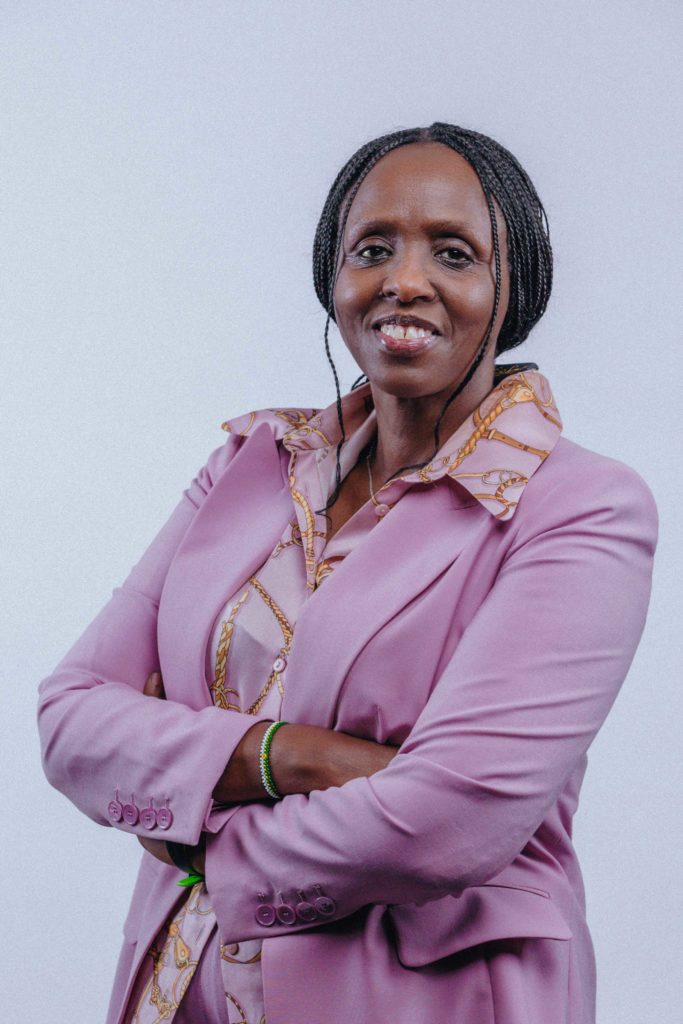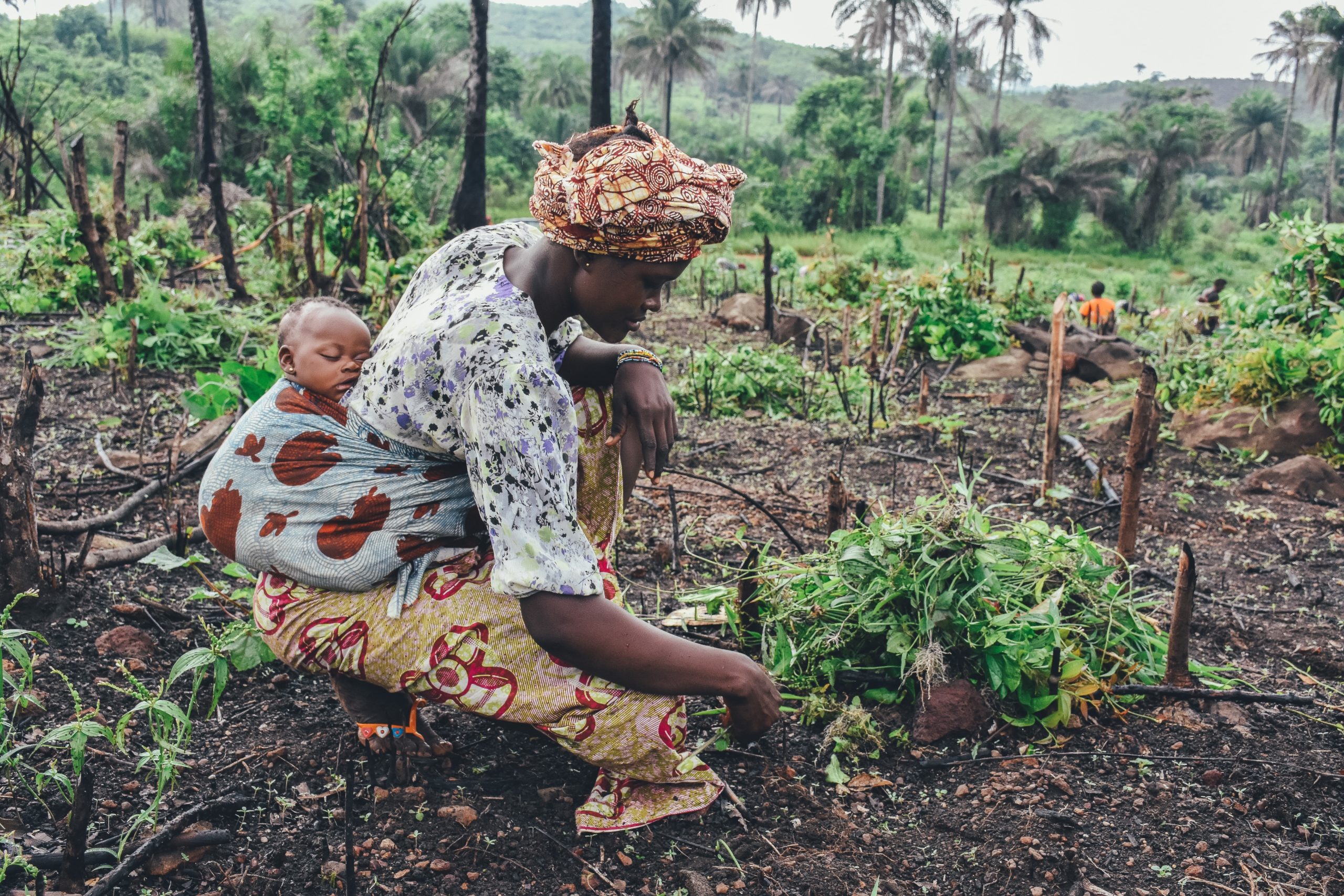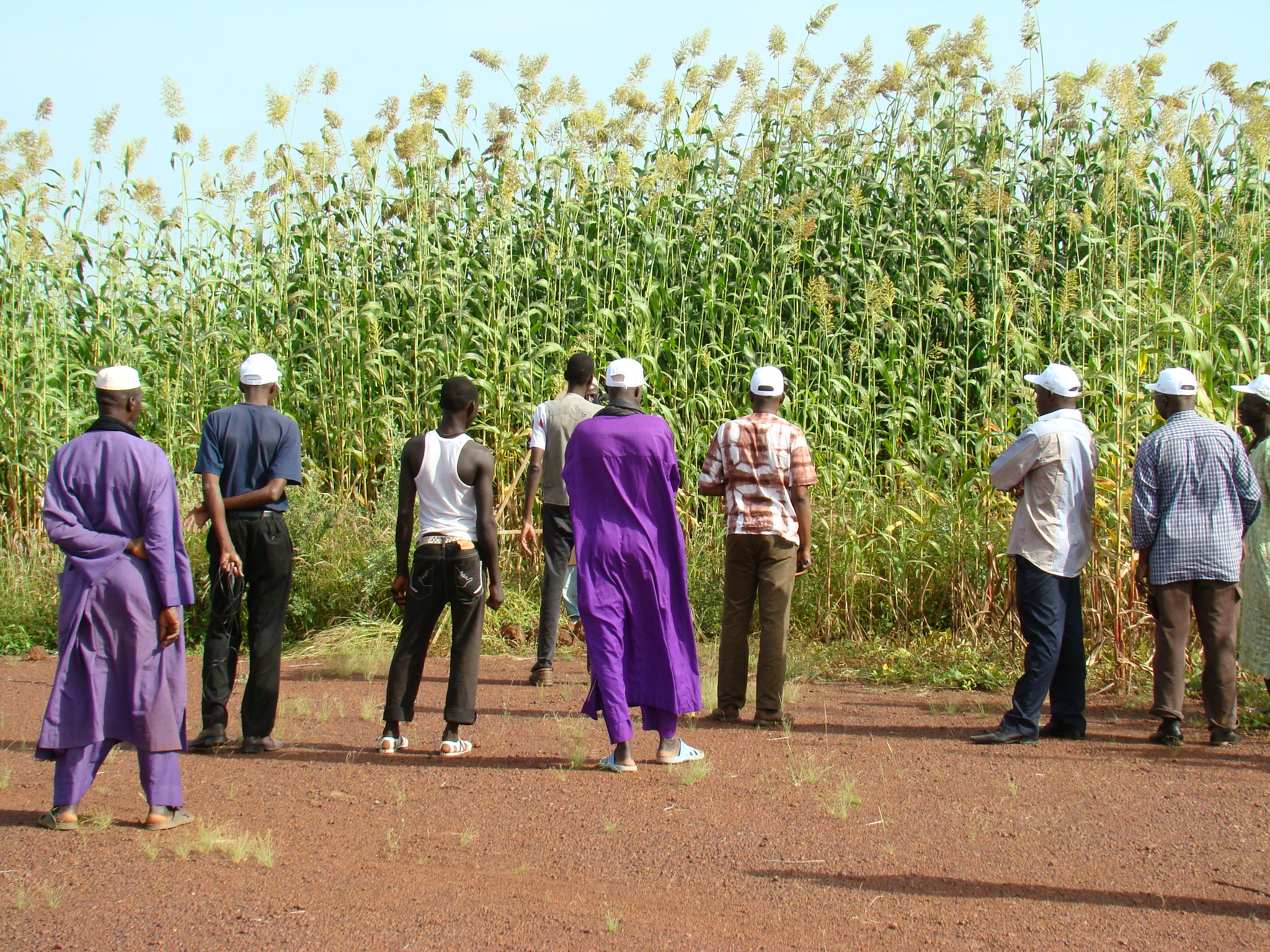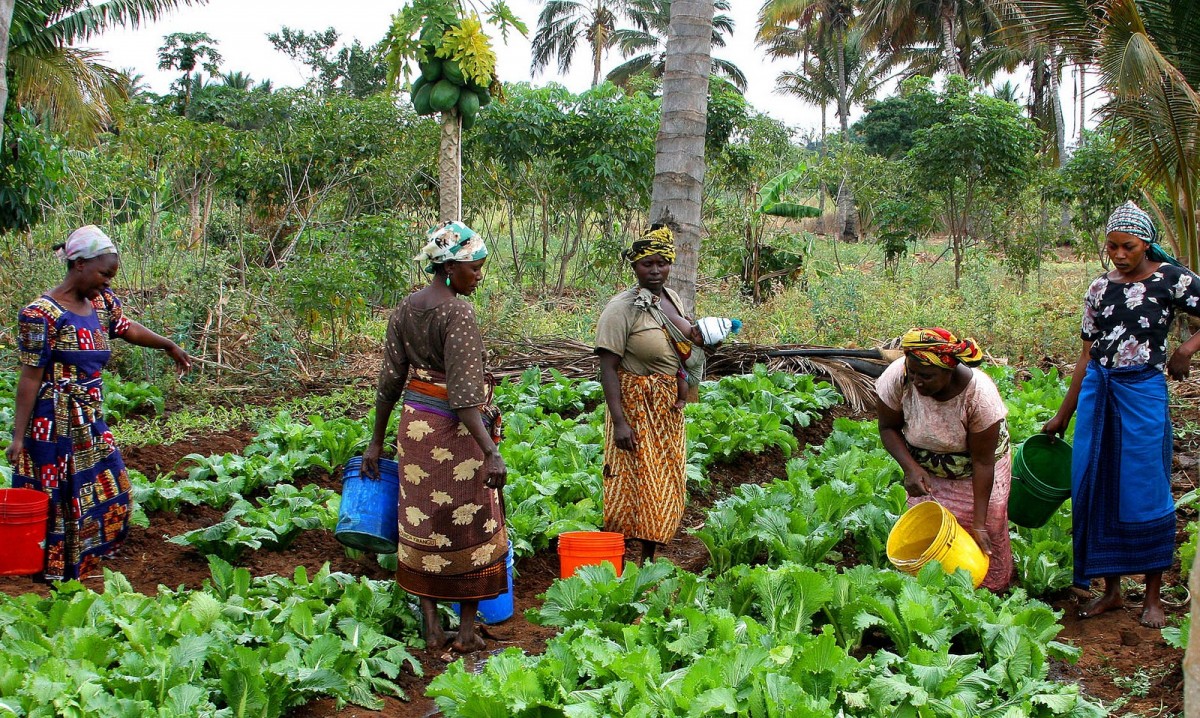Dr. Agnes Kalibata: To reverse runaway climate change and build resilient societies we need to transform food systems
Climate Champions Global Ambassador, Dr. Agnes Kalibata is President of AGRA, an African led and Africa based institution that puts smallholder farmers at the centre of the continent’s growing economy. In this interview, Dr. Kalibata discusses why urgently transforming our food systems is not only critical for our environment and the climate, but for the economy – creating opportunities for urgent growth in a time of compounded crises.
By Charlotte Owen-Burge | November 12, 2022
What is the state of food security in Africa today, and what is the role of climate change?
Africa’s food systems have become fragile because they are highly vulnerable to climate change and, as a result, to all sorts of shocks.
Currently, there is growing food insecurity with one in every five people, or 20% of the African population projected to be facing chronic hunger. Africa is not on course to meeting its SDG targets, in particular SDG 2: Zero Hunger and SDG 1: End Poverty and related goals, such as SDG 3: Good Health and Well-Being, SDG 5: Gender Equality, and SDG 10: Reduced Inequalities.
Even more concerning to me is that we continue to lose agricultural land to degradation. An estimated 46% of the land in Africa is being degraded mainly by unsustainable agricultural practices and / or deforestation. This forms a vicious cycle with climate change reducing the resilience of people due to negative externalities.
Of course, not all this is climate change; conflicts – local, regional and now global and other external shocks — further impose high costs on food and the cost of living, and put more pressure on the environment and biodiversity.

Dr. Agnes Kalibata, AGRA President.
Transforming food systems offers an opportunity to reverse runaway climate change and build resilient societies to future shocks and stresses. Sustainable farming and consumption is critical to creating the right balance between the needs of people and the needs of our planet.
Practical lessons that can be scaled exist: from sustainable intensification of food systems, to regenerative agriculture, to agroecology and related agroforestry. These solutions offer us an opportunity to build food, social-economic, and ecological resilience to the negative effects of climate change. These practices are inclusive and work towards empowering communities against hunger and poverty and ensure inclusion of marginalized communities and people.
A food system approach is therefore not only good for the environment and the climate, but it also makes good economic sense as it creates opportunities for urgent growth that so many countries need in order to recover from COVID19, and the impact of conflicts and climate shocks.
Who is most affected by climate impacts on food security?
The most vulnerable are the most affected by climate change and the knock-on effect to food security. These include smallholder farmers and especially women and other marginalized and disadvantaged groups such as the youth.
Due to their low adaptation capacities, small producers face myriad challenges that further reduce the resilience and coping strategies to climate change. Through the adoption of technologies, there is an opportunity to reduce food insecurity by small scale producers. The existence of drought/flood tolerant crops, and the opportunity to tap into the diversified nature of African food systems are areas of huge potential to strengthen the resilience of farmers and farming landscapes.
Improving availability of technologies and functional markets for Africa’s women can be a game changer given that women are involved in the production of ~70% of Africa’s food! Inclusion of women in more equitable ways – in the way they access, use and benefit from improved technologies – has huge potential to stabilize and build resilience in our food systems.
How will climate change affect crops and smallholder farmers?
Poor and vulnerable populations of sub Saharan Africa are likely to face the greatest risk. Climate change has intensified the global hydrological cycle causing several societal impacts, which are felt disproportionately by vulnerable people.
Africa Climate Change Impacts and Risks as identified by the IPCC:
- Temperature Rise: Most African countries will enter unprecedented high temperature climates earlier in this century than generally wealthier, higher latitude countries, emphasizing the urgency of adaptation measures in Africa (high confidence).
- Biodiversity loss: Above 1.5°C, half of assessed species in Africa are projected to lose over 30% of their population or area of suitable habitat.
- Productivity Loss: In Africa, agricultural productivity per capita has been reduced by 34% since 1961 due to climate change, more than any other region. Future warming will negatively affect food systems in Africa by shortening growing seasons and increasing water stress- this is already happening in Eastern Africa leading to famine.
- The more extreme events around climate change in sub Saharan Africa have been manifested mainly through drought and flood. Climate change is also likely to intensify the current challenges of water scarcity and water competition within and between communities and nations, linked by hydrological flows across watersheds and basins leading to migration and water and food related conflicts. Again, this is now happening, and the number of climate related refuges is on the rise.

Women are involved in the production of ~70% of Africa’s food. Image: Photo by Annie Spratt on Unsplash
How can agriculture adapt to climate change?
There are multiple and integrated ways to enhance climate change adaptation and mitigation for small scale farmers that can minimize the climate crisis including:
- Reducing the Carbon footprint of farming, particularly in industrial scale farming. Over 70% of emissions in the agricultural sector come from energy intensive and carbon releasing operations. Reducing our carbon footprint means a rethink, and/or minimizing industrial agriculture in crop and livestock systems, reducing excess use of agrochemicals and finding renewable energy sources to power the sector.
- Regreening for carbon sequestration and climate mitigation. Investment in forest management, reforestation and agroforestry systems, particularly in Africa, where the vegetative cover is in decline, would be critical to address climate-related challenges. AFR100 (the African Forest Landscape Restoration Initiative), which aims to bring 100 million hectares of land in Africa into restoration, will contribute significantly to this goal.
- Investing in irrigation to minimize climate-related agricultural risk. Only about 4% of land in the region is currently irrigated. This is not necessarily due to physical water scarcity. Rather, the main constraint of irrigation is economic water scarcity, i.e. investments in the management of water resources are not substantial enough to meet water demand, and farmers do not have the financial means to exploit water resources on their own. Irrigated agriculture is becoming an increasingly important intervention towards managing climate variability, meeting the demands of food security, employment and poverty reduction.
- Integrated landscape management, which integrates both restoring degraded lands and also increasing forest covered landscapes, would be critical, not only to mitigate climate change but also to enhance ecosystem services and serve as water towers for downstream dwellers. Moreover, managing water at landscape scales brings an accompanied benefit of managing run-off, controlling soil erosion and improved vegetative cover.
- Moving towards Indigenous, resilient and nutritious crops of Africa. Research and development focus is mainly in three crops, mainly maize, wheat and rice, which together account for about 50% of the global calorie supply. However, crops like Sorghum, Millets, Cassava, Teff, fonio, which are adaptive to drought-prone and degraded soils of sub Saharan Africa, are rarely getting attention in terms of technology development but also limited market incentives for farmers to grow them.
- Technology-based carbon removal: Enhance and develop innovations and technology in both limiting and reducing CO2 in the atmosphere. Africa is a net carbon sink contributing significantly to global carbon removal, but we have an opportunity to do more mainly through afforestation, revegetation and soil health while using these as incentives to do more.
- Clean energy: Moving towards clean energy climate solutions, and reducing dependence on fossil fuels. Solar and wind energy sources are increasingly attracting investment in Africa.

Innovative farming practices in the Sahel. Image: Climate Change, Agriculture and Food Security
What role does localization play in building back the food system?
Africa is a diverse continent with multiple ecological zones and profiles, cultures, farming systems and people. Embracing this diversity through the use and integration of Indigenous knowledge, generating and using context-specific evidence to design and implement programs, is key to ensuring we have sustainable food systems and would ensure greater success of the future food system.
Through localization we need to embrace lean and adaptive programming that responds to different challenges that climate change is posing to our food systems. For example, the mix and use of technologies such as improved seed, and Indigenous knowledge for increased productivity and consumption, will strengthen the ability of communities and countries to maintain their food security and stimulate markets and innovation.
What is AGRA doing to help countries build food security in the face of climate change?
AGRA is supporting the continent to put in place a good systems framework that has clear strategies at country level, and that can be tracked enough to show progress. This is matched with increased capacities of policy and state capabilities to create an enabling environment for food systems to thrive.
We are also working with local stakeholders to promote integrated approaches and technologies that will build resilience for smallholder farmers and the abilities to respond or cope with climate change.
AGRA is innovating around practices that are regenerative and inclusive particularly around issues of integrated soil health.
Our sustainable farming programs are a direct response to external shocks such as climate change. We are working to strengthen food systems, to build resilience and adapt to climate shocks. Strengthened food systems will help countries on the continent build food security.
Improving availability of technologies and functional markets for Africa’s women can be a game changer given that women are involved in the production of ~70% of Africa’s food!
Is there a clear connection between higher food prices and the rise of poverty?
Africa has a big informal job sector. This sector has temporary jobs or jobs in transitions. For the population under this sector, especially youth and women, the high cost of food puts pressure on unstable economic earnings and implies choices. Those choices usually result in reduced nutrition for the family and higher poverty levels. This was particularly the case under COVID19 and under the current cost of living crisis where a lot of people have been exposed to spending more of the little they earn, or cut out nutritious food, ultimately increasing levels of household poverty.

For the population working in agriculture, especially youth and women, the high cost of food puts pressure on unstable economic earnings and implies choices. CC0.
Who should be doing more, and how?
All parties (developed and developing countries, and many relevant stakeholders such as the private sector) have responsibilities they need to commit to, and be willing to be held accountable. Developed countries, for example, need to deliver on their promise of more financial and technological flows to counties that do not have it. We need to avoid what we saw in the vaccine apathy during the COVID19 pandemic when it comes to dealing with climate change.
We need to fix inequalities and non-responsiveness in our market systems and institutions.
What’s changed since COP26?
Since COP26, we have seen one crisis after the other. We have seen the Russia-Ukraine Crisis, increased weather changes, floods in West Africa, extended dry spells in parts of East Africa.
Climate stresses are more recurrent; we are seeing their impact almost every year now. Increasing temperatures and changing precipitation patterns threaten Africa’s food and water security. We have seen massive climate related damage around the world with new highs in heat waves.
The Russia-Ukraine Crisis has impacted global supply chains and economies, increased anxiety, and threatens to get us off course from 1.5 degrees. This is especially true as larger emitters go back to coal.
But we have also seen COVID19 recede even though it crippled entire industries (such as hospitality which is a key outlet for agriculture). It also impacted supply chains, diverted funding, and has left a number of countries highly indebted.
Africa’s agricultural sector is facing significant exposure to water-related climate risks from Nigeria with floods, to East Africa with drought. Africa still depends on agriculture as a primary source of income for about 65% of its population and yet more than 95% of its agriculture is reliant on rainfall. The consequences of unpredictable rainfall, rising temperatures, extreme drought, and lower crop yields, exposes Africa to food and water shortages and famine as seen in the Horn of Africa. All this has happened this year.
On the positive side, there is much more awareness and an increasing anxiety to find solutions to the climate emergency. I have always been amazed at the creativity and innovation capacity of communities when pushed on the edge. I came out of the Food Systems Summit with a renewed respect for the power of how quickly we innovate and how much we can deliver when we agree to work together. This continues to grow despite the challenges.
What outcomes would you like to see from COP27?
I am happy that this is being treated as an African COP – as earlier promised – with issues central to the continent like access to food and food systems being given centre stage for the first time at a COP.
Only 1.5% of global climate finance (USD ~10 billion) is channeled to small-scale agriculture, and only 7% of that (USD ~700 million) is going to value chain actors like smallholder farmers. The vast majority of this financing (more than 95%) comes from public sources. Africa realizes there is a critical need for concerted efforts towards increasing and catalyzing adaptation actions that will tip the global financing balance towards addressing African challenges in energy and the needed just transition and in food system transformation so that they are more inclusive. The private sector is an important stakeholder to drive innovation and financing in this direction and should step up effort to compliment public financing.
Following discussions and commitments made in Kigali at the AGRF, and in Asia at Grow Asia on tipping the adaptation financing balance towards Africa, I would particularly hope to see specific actions to both mitigate the impact of agriculture on the climate, and advance the adaptation agenda.
We must unlock and target adaptation funds, achieving and passing the $100 billion per year target. This must be much more targeted and accessible to Africa. I do believe that Africa is ready to showcase investment areas that are financing-ready.
Dr. Kalibata served as the Special Envoy of the UN Secretary-General for the 2021 Food Systems Summit. At the UN Food Systems Summit, 166 countries committed to food systems transformation to accelerate progress towards the SDGs. She was Rwanda’s Minister of Agriculture and Animal Resources (MINAGRI) from 2008 to 2014. During her tenure, Rwanda became a food secure nation. Dr. Kalibata has a distinguished record of accomplishments as an agricultural scientist, policy maker and thought leader. She is the recipient of many prestigious awards. Dr. Kalibata sits on various panels, boards, councils and commissions to provide thought leadership around supporting sustainable, resilient and inclusive food systems. Together with partners, AGRA is working to sustainably grow Africa’s food systems.





